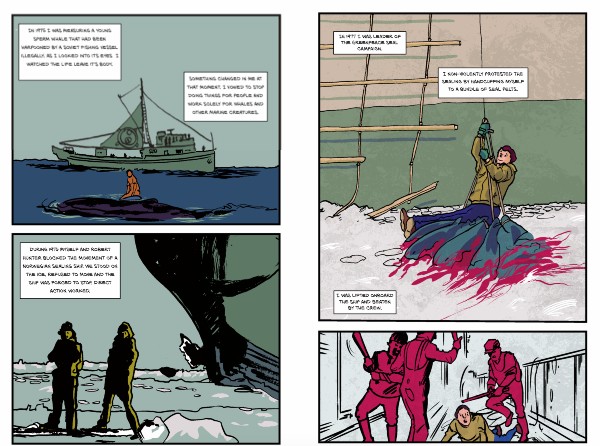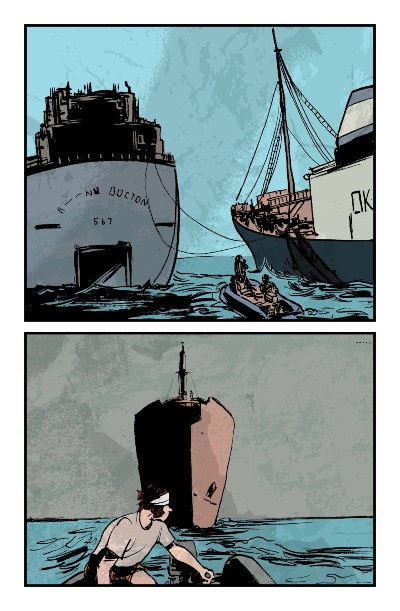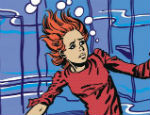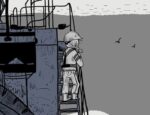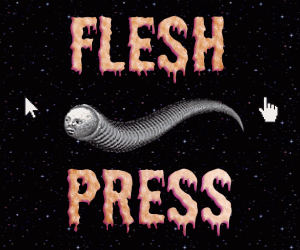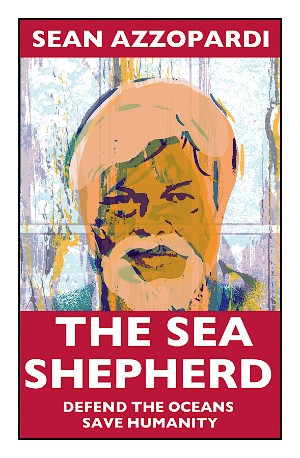 A graphic biography of the titular marine conservation organisation and its environmental activist founder Paul Watson, The Sea Shepherd marks one of long-time UK small presser Sean Azzopardi’s semi-regular digressions from his autobio comics practice. Sea Shepherd, for those unaware of its work, is a direct action group working “to end the destruction of habitat and slaughter of wildlife in the world’s oceans in order to conserve and protect ecosystems and species.” Founded in 1977, the non-profit has in the past adopted a more confrontational approach to its activism than other environmental organisations including ramming and sinking ships involved in illegal poaching activities, though Watson would argue that rather than breaking laws these actions are actually upholding them.
A graphic biography of the titular marine conservation organisation and its environmental activist founder Paul Watson, The Sea Shepherd marks one of long-time UK small presser Sean Azzopardi’s semi-regular digressions from his autobio comics practice. Sea Shepherd, for those unaware of its work, is a direct action group working “to end the destruction of habitat and slaughter of wildlife in the world’s oceans in order to conserve and protect ecosystems and species.” Founded in 1977, the non-profit has in the past adopted a more confrontational approach to its activism than other environmental organisations including ramming and sinking ships involved in illegal poaching activities, though Watson would argue that rather than breaking laws these actions are actually upholding them.
The opening pages of The Sea Shepherd are not reticent in their depiction of the issues at the heart of the comic. They document a series of raw, stripped back, violent images of the atrocities that humankind commit against the marine environment that make it near impossible not to feel sympathy to that direct action philosophy. But not all such brutality is illegal. An early segment dealing with the barbaric slaughter of whales on the Faroe Islands, through a mixture of misplaced national pride and blood sports recreation, seems incomprehensible for Europe in the 21st century and yet the reality of this horrific activity is all too actual.
The Sea Shepherd traces Watson’s activism from childhood (destroying the traps set by the trappers who had killed his pet beaver) to his departure from Greenpeace, his founding of the Sea Shepherd Conservation Society and their work in disrupting and confronting environmental abuses. Azzopardi traces Watson and the group’s activities through the years, visually reconstructing Watson’s accounts of sinking whaling ships, coming into conflict with Canadian sealers, firing water cannons filled with chocolate and meringue pie filling at Faroese Islanders, and confronting the Japanese whaling fleet. In the meantime we also learn about his and Sea Shepherd’s various legal wrangles, the group’s growing profile and resources, the authorities’ compliance with the excesses of the trades they oppose, and Watson’s eventual reasons for having to step back from such a direct role.
For the main part Watson’s story is, admittedly, largely a list of dates and events – narrative vignettes that act as a visual diary-type record of Sea Shepherd’s history. It’s Azzopardi’s art, though, that elevates the narrative with confident visual storytelling, both capturing the sheer horror of the unrelenting and amoral destruction of the biosphere and also the enormity of the marine environment The Sea Shepherd is set within. Those experimental quirks that we have come to expect from Azzopardi’s autobiographical comics are conspicuous by their absence but that is entirely fitting for a comic that is looking to access a wider potential audience. Back-up material juxtaposes the beauty of the oceans with the unrelenting cruelty of human interaction with it to alarming effect.
The Sea Shepherd is obviously not trying to be an impartial account. It’s very much a retrospective manifesto of intent. But at a time when we face a seemingly never-ending series of environmental crises it’s a sobering and topical account of one organisation’s determined attempts to make a positive difference through the decades, regardless of the repercussions for the activists involved.
Review by Andy Oliver





